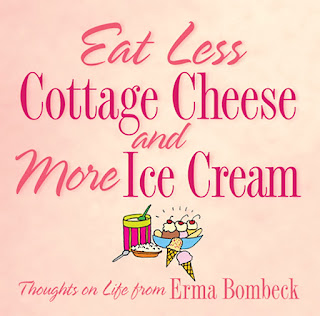The "Holy Grail" of Happiness
T
he expression "Holy Grail" points to one that is sought after because it is considered to be extremely valuable but often not achievable because of the great chasm along the path towards achieving it. Paradoxically, I seem to have found the "Holy Grail" of sustainability, of happiness after watching this commercial about giving that was shared to me recently.
One of my favorite quotes about happiness comes from Victor Frankl, an Austrian neurologist, psychiatrist, Holocaust survivor, and the founder of logotherapy, who presents a distinctive view on happiness in his writings, especially in his renowned book, "Man's Search for Meaning." I quote,
"Don’t aim at success—the more you aim at it and make it a target, the more you are going to miss it. For success, like happiness, cannot be pursued; it must ensue, and it only does so as the unintended side effect of one's dedication to a cause greater than oneself or as the byproduct of one's surrender to a person other than oneself" (Man's Search for Meaning).
Dr Frankl, in the first part of the book, which can be considered autobiographical, details his personal experiences and observations as a prisoner in Nazi concentration camps during World War II. He uses his experiences of facing unavoidable suffering to find a deeper sense of fulfillment and happiness, that is, by one's free choice to respond to that suffering, thereby finding a meaningful reason to continue living. Many unhappy people, myself included, are looking from the "outside" and think happiness is a highly sought-after goal that is difficult to find and obtain—Holy Grail. But the truth is, using the words of another great Philosopher Søren Kierkegaard, "The unhappy man is always absent from himself, never present to himself" and absent from all those that happen along his path.
"The unhappy person is one who has his ideal, the content of his life, the fullness of his consciousness, the essence of his being, in some manner outside himself. He is always absent, never present to himself" (The Unhappiest Man).
Nevertheless, it is profoundly transformative or rewarding for a person, simply because the person allows it to happen, simply like a "byproduct" and relish the joy when it happens. True happiness is akin to the three theological virtues: faith, hope and charity (love). St Thomas Aquinas says, any of the three is boundless and free from the risk of excess. I believe it is true also for happiness. Once you allow it to happen to you, there is no such thing as excessive happiness, it overflows.
"Being rich is not about how much we have, but how much we can give" is the Holy Grail of sustainable living on this planet, and of being happy. Amen. Fr JM Manzano SJ
I found this little picture book entitled "Eat Less Cottage Cheese and More Ice Cream: Thoughts on Life by Erma Bombeck" which illustrates what it means to really live to the full.
My answer was no, but then I thought about it and changed my mind.If I had my life to live over again I would have talked less and listened more.Instead of wishing away nine months of pregnancy and complaining about the shadow over my feet, I'd have cherished every minute of it and realized that the wonderment growing inside me was to be my only chance in life to assist God in a miracle.I would never have insisted the car windows be rolled up on a summer day because my hair had just been teased and sprayed.I would have invited friends over to dinner even if the carpet was stained and the sofa faded.I would have eaten popcorn in the "good" living room and worried less about the dirt when you lit the fireplace.I would have taken the time to listen to my grandfather ramble about his youth.I would have burnt the pink candle that was sculptured like a rose before it melted in storage.I would have sat cross-legged on the lawn with my children and never worried about the grass stains.I would have cried and laughed less while watching television... and more while watching real life.I would have shared more of the responsibility carried by my husband.I would have eaten less cottage cheese and more ice cream.I would have gone to bed when I was sick instead of pretending the earth would go into a holding pattern if I weren't there for a day.I would never have bought anything just because it was practical/wouldn't show soil/was guaranteed to last a lifetime.When the child kissed me impetuously, I would never have said, "Later. Now go get washed up for dinner."There would have been more I love yous... more I'm sorrys... more I'm listenings...but mostly, given another shot at life, I would seize every minute of it...look at it and really see it...try it on... live it... exhaust it...and never give that minute back until there was nothing left of it.
The text originally appeared in a newspaper column, "If I Had My Life To Live Over," c. December 2, 1979 by Erma Louise Bombeck (1927–1996).



Comments
Post a Comment
Thank you for your interest in the above post. When you make a comment, I would personally read it first before it gets published with my response.